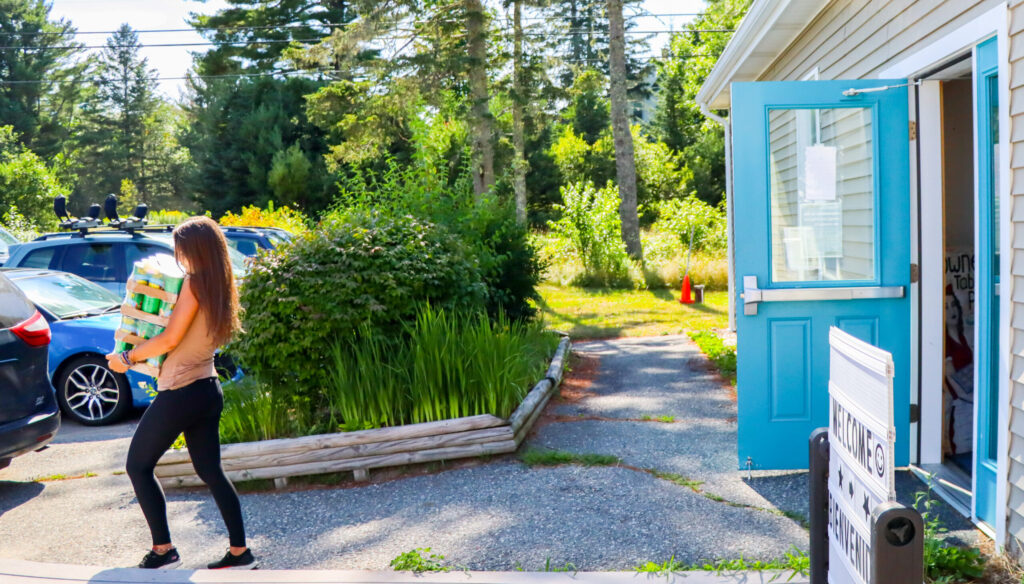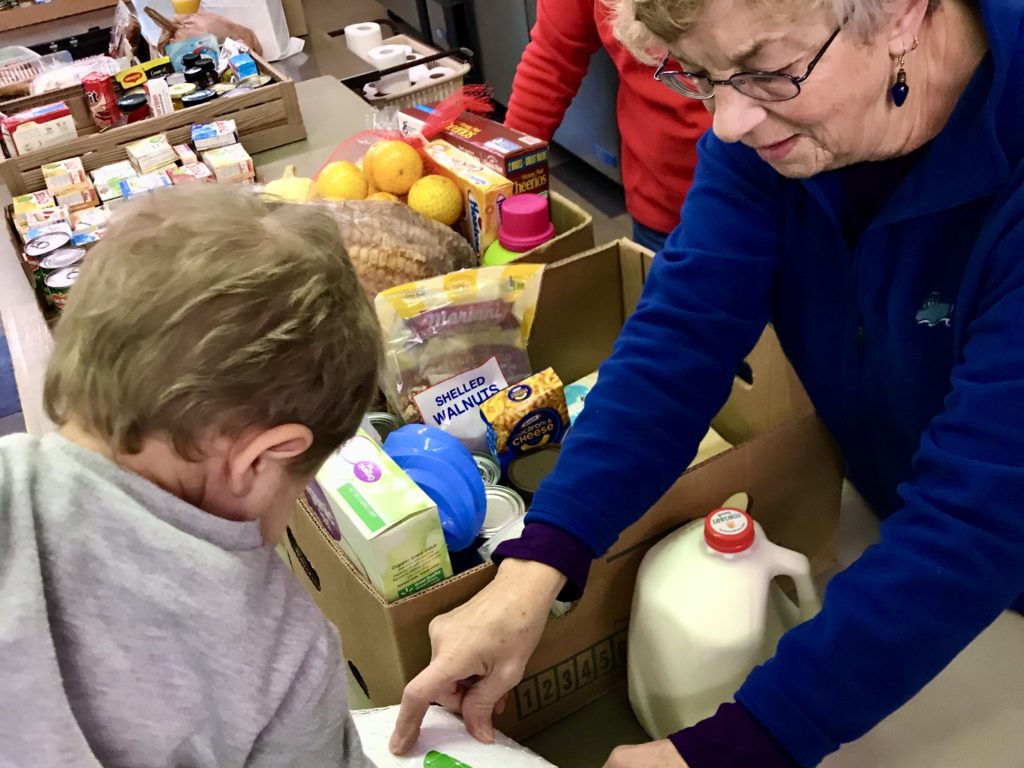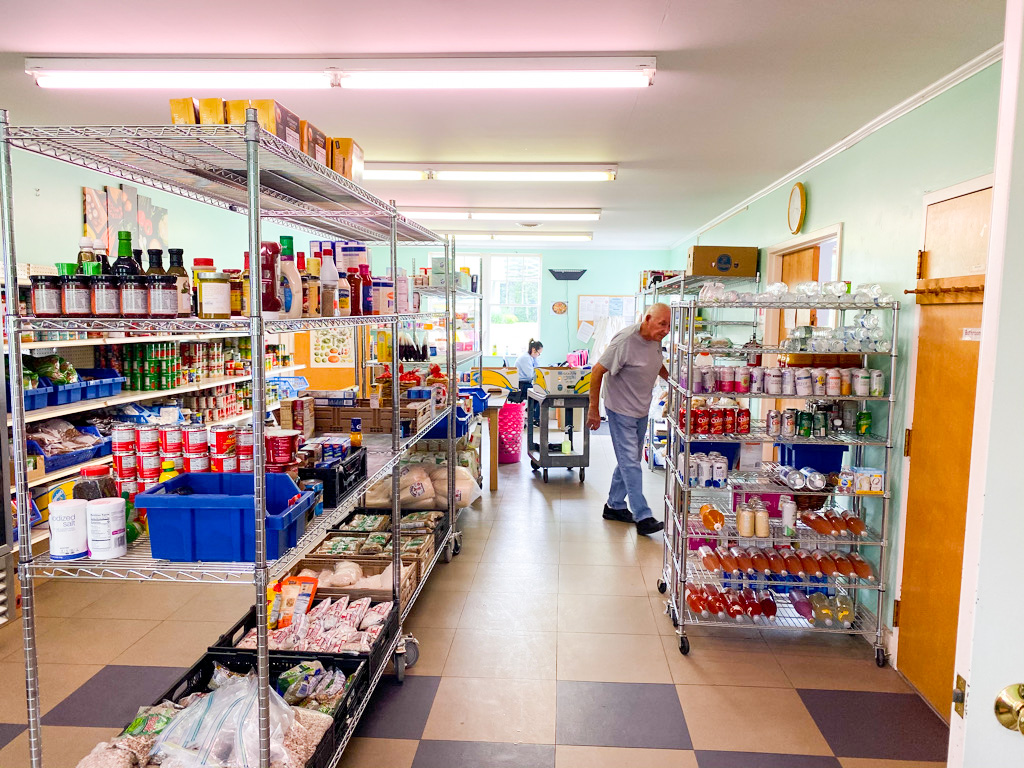Beginning in October of 2021, Megan Smith, Food Security Program Coordinator, started seeing familiar faces more often at the Mission’s food pantry. As everyday costs, such as home heating oil and rent continue to rise, many must adjust their budgets to make ends meet. This decreases the amount of money they can spend on other necessities, like food, and can present real challenges for many Downeast families.

“Most of the general public thinks people utilizing pantry services are people in deep poverty, but that isn’t true in today’s economy. The average pantry recipient today is working—usually more than one job—and earns too much income to qualify for federal or state support programs,” explains Jenny Jones, the Mission’s Interim Downeast Director. “So, they turn to local organizations where income isn’t a barrier to services. More and more low- and middle-class households are needing the pantry.”

Increased pantry use is something that has been seen at food pantries across the country. A study from the Urban Institute found that food insecurity has steadily increased since 2021 and Feeding America, which supports food banks across the country, found that 90% of food banks reported seeing increased or steady demand for their services amid record food price increases.
These increases are felt more acutely in places with high food insecurity levels and a little over 17% of Washington County’s residents are food insecure, according to statistics from Good Shepherd Food Bank. Washington County’s level of food insecurity was one of the highest in the state and much higher than the national level of around 10%.
“As a low- to no-barrier pantry, we really work to let our community know they can come each week,” says Megan. “We want our pantry experience to feel as normal of a grocery experience as possible.”
The Mission’s pantry has fridges filled with fruit, vegetables, protein, and other perishable items, shelves with other staples including bread, pasta, canned goods, and a section of toiletry and baby items. If a community member cannot physically visit the pantry, they can request certain items that can be delivered. The Mission also partners with the Eastern Area Agency on Aging and the Good Shepherd Food Bank to offer commodities boxes to seniors once a month which include selection of fruit, juice, vegetables, milk, cheese, grains, and protein.

Smith works to create a place where pantry customers feel welcome and comfortable. Through this, the pantry is a place where they can talk about their worries openly and share both their hopes and accomplishments. The connections Smith makes with customers allow her to support them in other ways including suggesting other services they might benefit from.
To learn more or visit the pantry, please visit our Food Security program. The Mission welcomes volunteers who wish to assist in the pantry or make deliveries.
